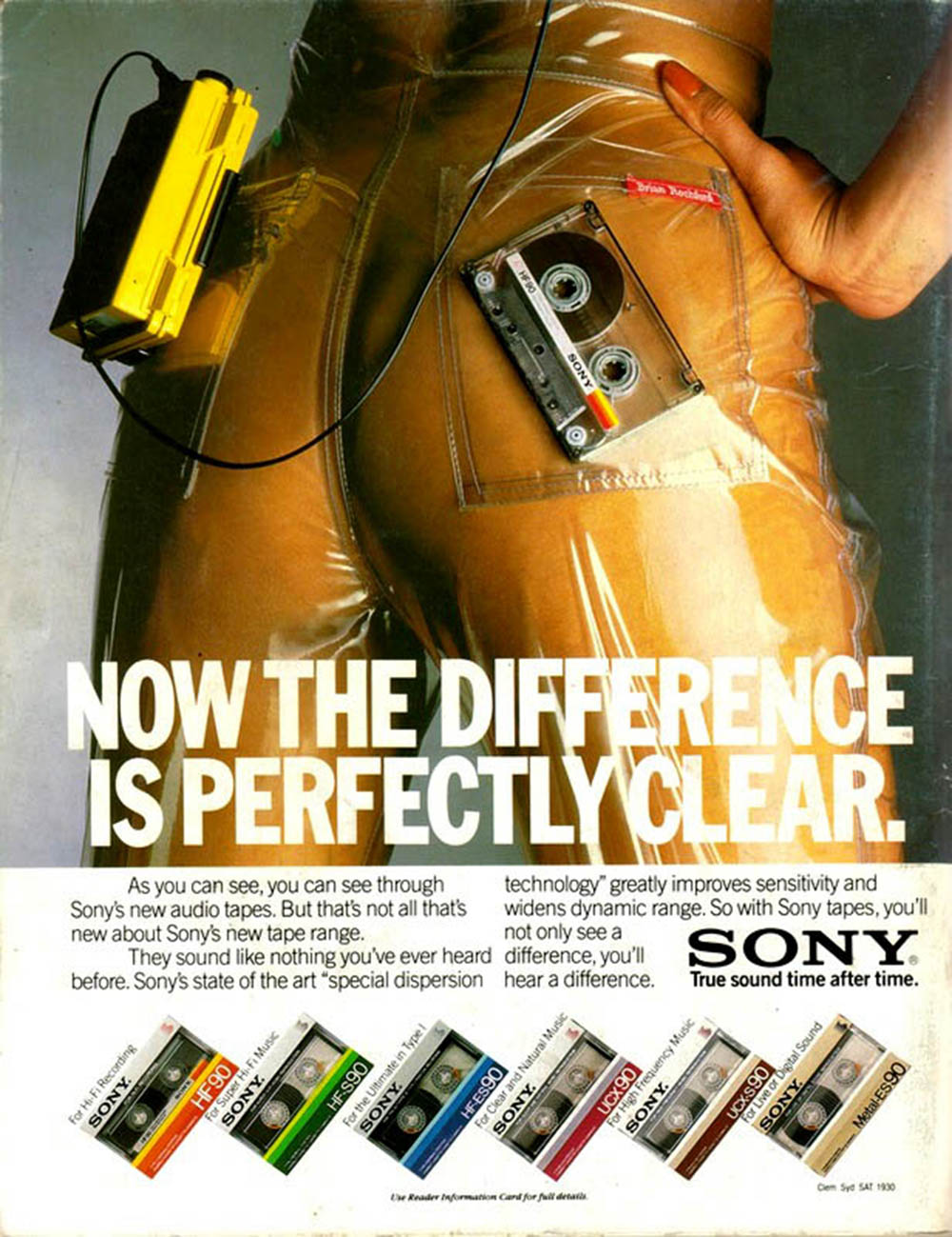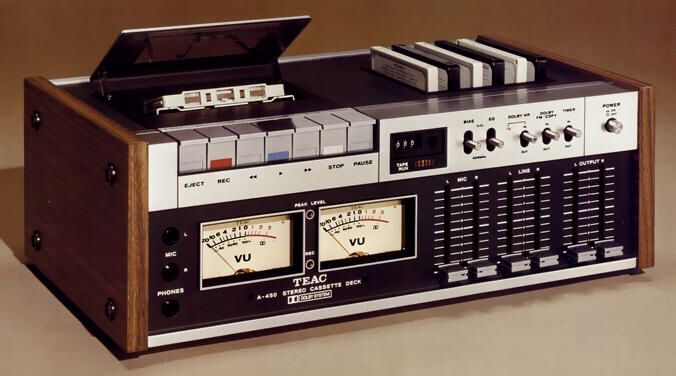As the decade-plus resurgence in vinyl sales continues, one thing that has become all too noticeable for buyers is the often steep price of being a vinyl snob. From heavyweight vinyl to hard-laminated cardboard packaging, a single LP usually sells for around $30, thus making most off-beat sales prohibitive for the more casual collector. Lately, though, cassette tapes have come to the rescue. Once the province of the romantic mixtape maker looking to show off their good taste and curatorial skills—to say nothing of their roles as de facto love letters or breakup notes—the pre-recorded, artist-driven cassette tape’s costs were on an equal footing with vinyl album sales prices. Looking at the days before the revolution that was (supposed to be) CDs boosted the price of an artist’s music, the cassette tape and the vinyl LP usually topped off at about $8. And like the vinyl LP, the cassette, too, went into a hibernation of sorts, banished to an image of antiquation, yard sales, and thrift store bins near the front counter.
That is, until indie artists within the last 10 years rediscovered the intimate and easy-to-hold joys of the cassette; to say nothing of the niceness of its price point in the manufacturing stage, as well as for fans at live shows and during Bandcamp sales days. These devoted fans were looking to spend and support, but not risk not being able to pay rent. And with that, the cassette tape became a solid option in which to release music without gauging the consumer.
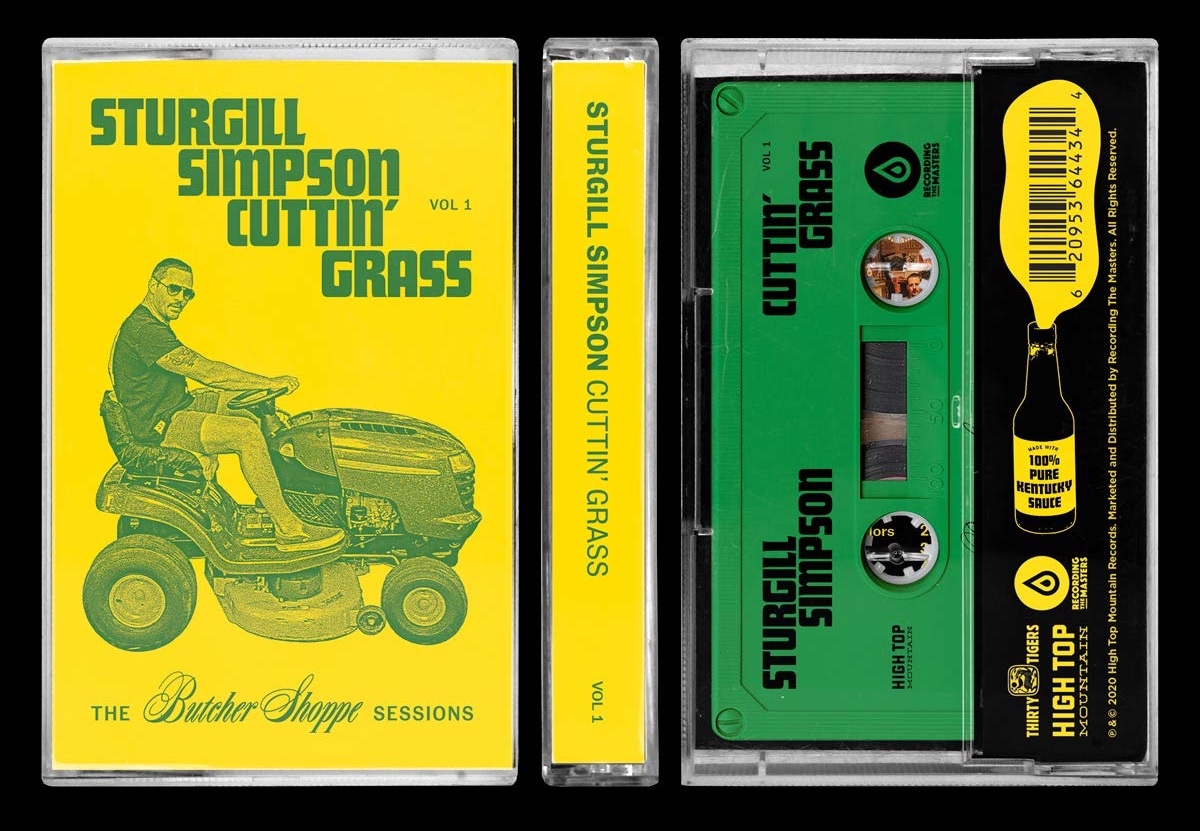
But what of the major labels? Rather than letting the smaller independents have all the fun, how and when would the majors take advantage of the trend? The answer comes this spring as RecordingTheMasters reel-to-reel tape manufacturers have teamed up with ThinkIndie Distribution to license and reissue a handful of recently released major label albums on cassette for the first time. So far, the genre-jumping, broad-scope series includes Sturgill Simpson’s Cuttin’ Grass, Vol. 1, Diplo and Major Lazer’s Peace Is the Mission, Maren Morris’ GIRL, Lupe Fiasco & Kaelin Ellis’ HOUSE EP, The Story So Far’s Proper Dose, Killswitch Engage’s Atonement, and The Mavericks’, En Español.
“What’s funny is that in the world we live in, we’re often thinking about how something will fit a Facebook format versus an Instagram format, so adjusting the original packaging to the new/old cassette format was not an unfamiliar process.” — The Mavericks’ Jerry Dale McFadden
Outside of Record Store Days offering catalog items as new rarities—such as July 2021’s RSD Drop of Pearl Jam cassettes—this is the first time any major label artists have found their acts’ recent or newest works in cassette form. Longtime Mavericks member Jerry Dale McFadden has forever art-directed and created covers for his band. Considering the process of shrinking often gorgeous designs for CDs—and now cassette—poses the challenge of making art workable for odd cassette shaping, which was a breeze when it came to their recent album.
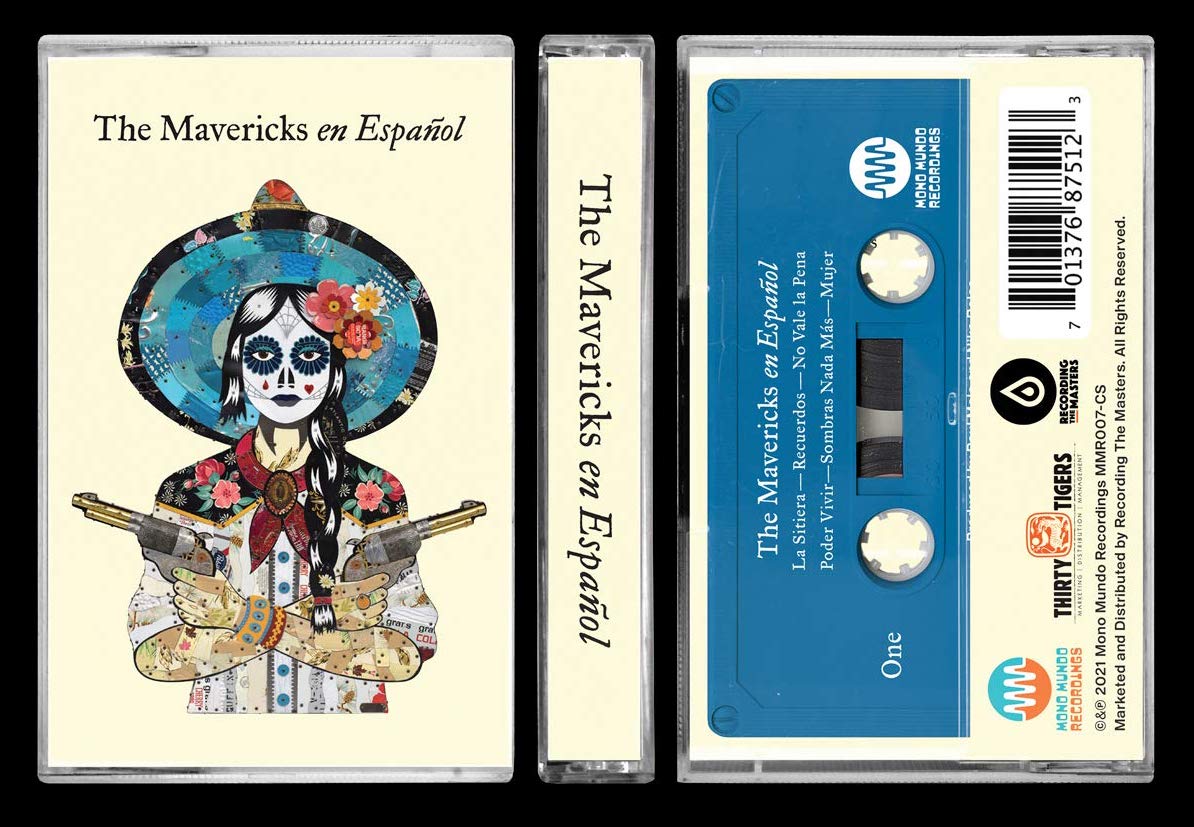
“We just got lucky on En Español; using a solid-color background for the album cover made converting it into a cassette format much easier,” he says. “What’s funny is that in the world we live in, we’re often thinking about how something will fit a Facebook format versus an Instagram format, so adjusting the original packaging to the new/old cassette format was not an unfamiliar process.”
Talk to McFadden about the overall glory of the cassette format, of growing up and making mixtapes for friends, lovers, and those you wish to woo, and not only does he agree, he claims that after all of his years of collecting music, it’s his cassettes that remain. “They’re all I have left in my collection. For various reasons, I sold off my vinyl and CDs once most of the music I listened to was on various devices. I still have boxes and boxes of my cassettes. Probably half of them are homemade mixtapes, or tapes friends made me throughout the years. They’re very sentimental to me.”
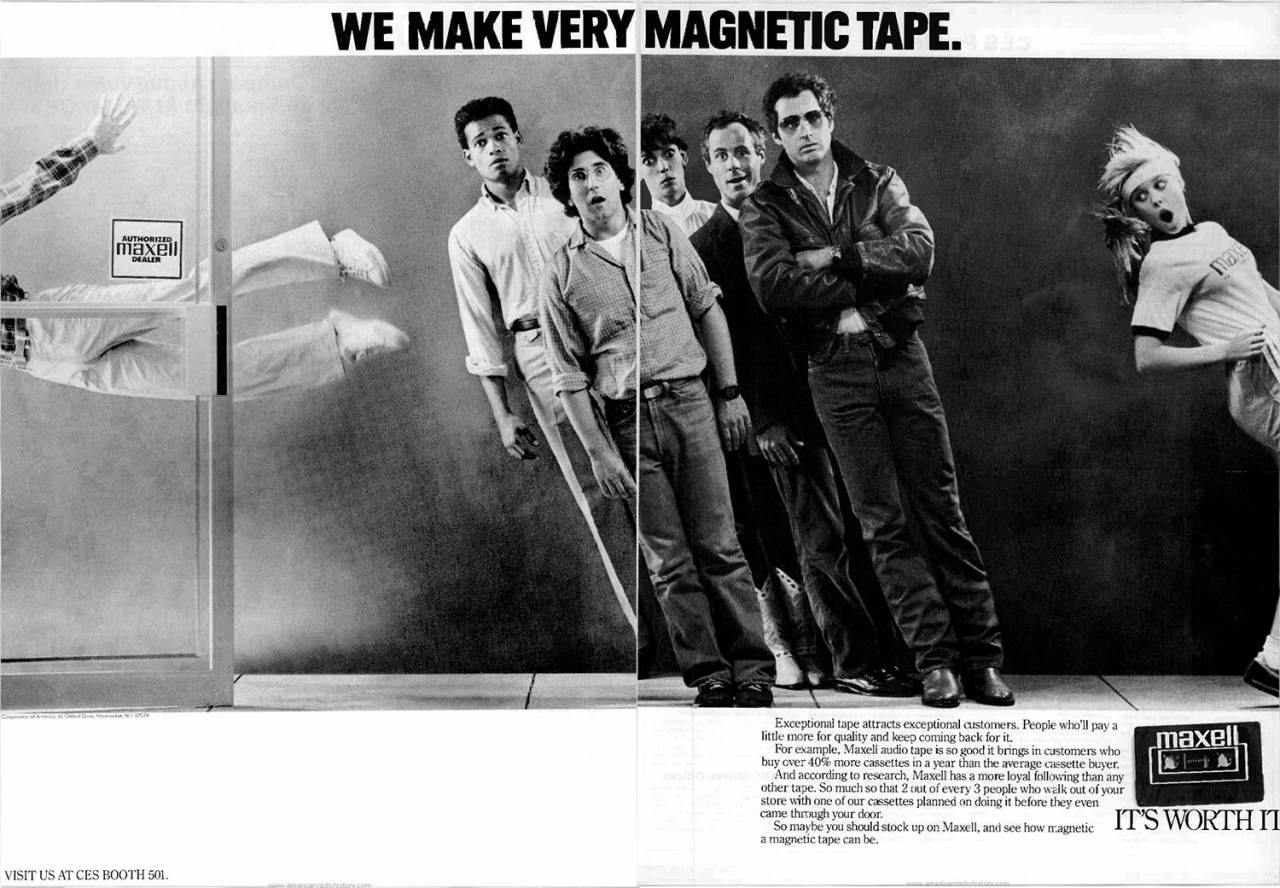
The RTM/Think Indie alliance, and choosing a work as audacious as their first all Spanish-language album, came after McFadden and bandmate Raul Malo were connected with this project by David Macias, the head of The Mavericks’ distribution company Thirty Tigers. “En Español had just been released to a #1 debut at the time, and we were thrilled to hear the cassette company was interested,” McFadden continues. “Releasing this album was a big focus for us over the past few years, and with it already available on several different physical and digital formats, we jumped at the chance to add cassette to the collection.”
Scott Register of ThinkIndie believes the cassette form has several levels of appeal. “For certain generations, it’s nostalgia,” he starts. “For younger ones, everything old is new again, and there’s a cool factor to it. And, believe it or not, I know music fans who prefer the analog sound of these cassettes to other mediums.”
“For certain generations, it’s nostalgia. For younger ones, everything old is new again, and there’s a cool factor to it. And, believe it or not, I know music fans who prefer the analog sound of these cassettes to other mediums.” — Scott Register, ThinkIndie
As one who distributes and licenses the music, ThinkIndie’s collaboration with RTM has to do with cost consciousness and the competitiveness of the more prohibitive aspects of the 180-gram vinyl revolution. “Cost consciousness is always in the equation when we’re deciding on what to release,” says Register. “We don’t want to turn off the consumer or get them upset with our customers, the indie stores. With that said, it’s apples to oranges when you’re talking cassette price versus vinyl. The vinyl threshold seems to be getting higher. I hope it stops climbing or goes back down, but with that said, the consumer doesn’t appear to be turned off for the most part just yet, especially if it’s for a superiorly produced product with bells and whistles.”
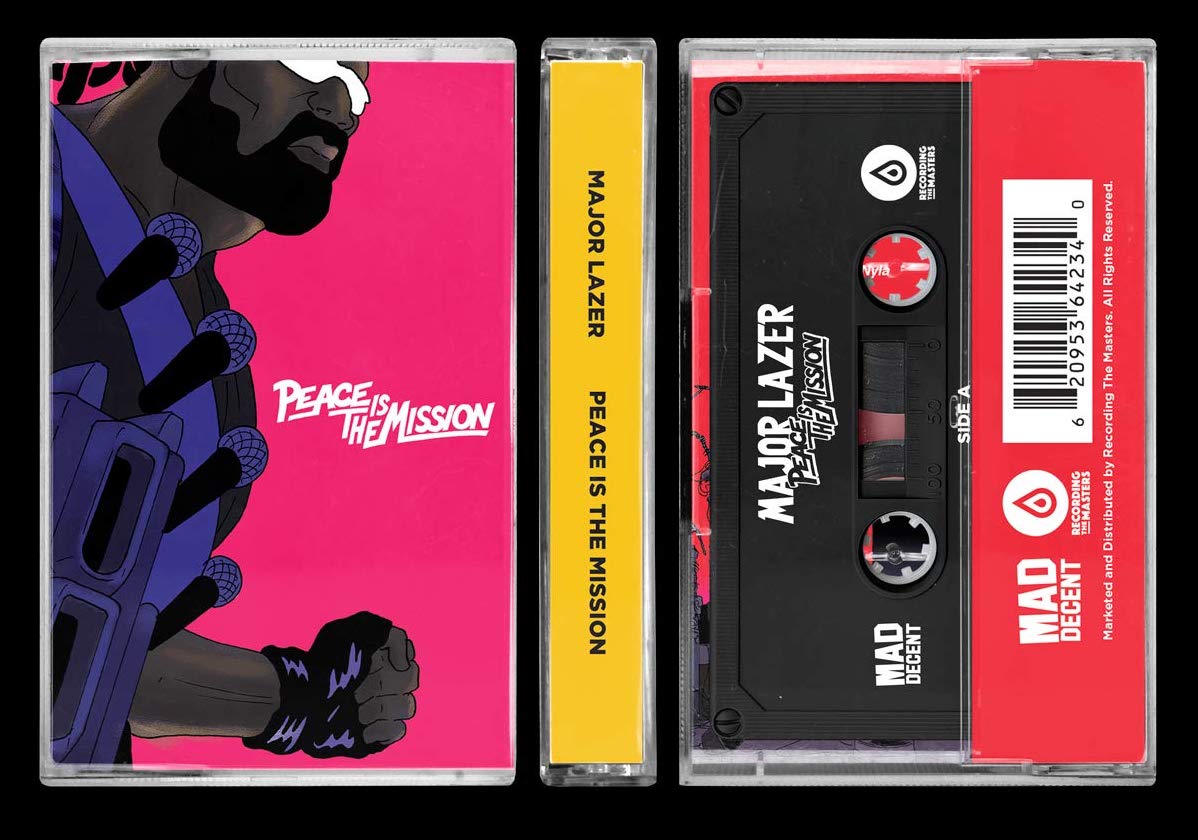
While admitting that the cassette market might not be for everyone (“I see it being more genre-specific or artist-specific…then again, not too long ago, the vinyl market wasn’t for everyone”), Register says the release of these new and recently released touchstones from name-brand artists such as Major Lazer and Marin Morris are selling well. “There’s a learning curve and we’re still way on the front side of it. We’re optimistic that the interest from the artists and from the consumers will continue to grow. As we see sales of vintage boomboxes continue to grow, and electronics companies rolling out more and more new models, that’s encouraging as it signals demand, and the folks that are purchasing them are gonna need cassettes to play on them.”
Neal Birnie, the Chief Music Officer of RecordingTheMasters seconds those emotions. Along with agreeing on the nostalgia factor and the physical nature of having to operate a “play” mechanism, Birnie remarks upon the one-time failing of the cassette form. “The sound is a huge factor because, personally, I remember cassettes always being a bit low-quality, hidden somewhere in the car…but as a company we’re flying the flag for superior-sounding cassettes. The feedback we get from our tapes compared to others of years ago is a testament to the hard work that goes into what we do.”
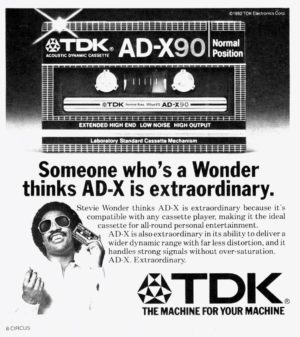
And with that, the costs reflect the quality, as RTM is one of the last remaining tape manufacturers in the world—a company that specializes in all things tape, and prides itself on high-end reel-to-reel tapes used in studios around the world. “The same high-end tape is used for all of our cassettes, so the quality is unlike any other. There’s been a similar comparison with alternative vinyl versions of a release, 180-gram, ‘audiophile,’ etc. We think our cassettes will naturally find their place in the market—the quality will shine through.”
“Most recently throughout lock down, cassettes have been able to support independent artists in a big way. Artists that made an album during lockdown were able to have a physical product to sell in under three weeks on cassette—it’s motivating from both ends of the spectrum.” — Neal Birnie, RecordingTheMasters
Keen to get a wide range of styles and genres onto RTM tape, there are huge recent and back catalogues to dive into. To that end, Birnie digs the notion of “giving stone cold classics a new lease of life on our tape. On the other hand, and most recently throughout lock down, cassettes have been able to support independent artists in a big way. Artists that made an album during lockdown were able to have a physical product to sell in under three weeks on cassette—it’s motivating from both ends of the spectrum.”
As for the future of cassette sales and releasing opportunities, from his partnership or in general, Birnie states that “Whether it’s the die-hard fan wanting all the different versions of their favorite album, a new generation experiencing cassette for the first time, straight up nostalgia, or self-releasing independent artists, the cassette form is important, its sound and sales encouraging from every angle, and we’re excited to be a part of it.” FL
